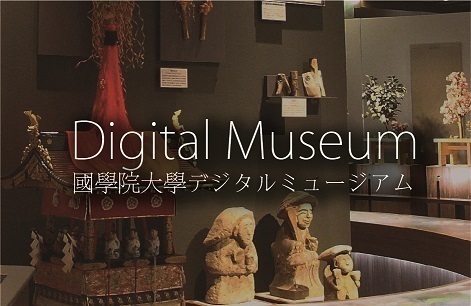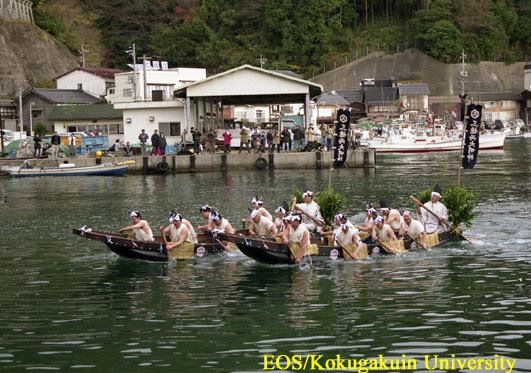- トップ
- Encyclopedia of Shinto
- Morotabune shinji
Encyclopedia of Shinto
| Main Menu: | |
| Links: |
詳細表示 (Complete Article)
| カテゴリー1: | 5. Rites and Festivals |
|---|---|
| カテゴリー2: | Individual Shrine Observances |
| Title | Morotabune shinji |
| Text | "Morotabune rite." A festival held on December 3 at Miho Shrine in Mihonoseki Town, Yatsuka District, Shimane Prefecture, whose origins lay in the myths regarding the transfer of the land (kuniyuzuri) to the descendents of the heavenly kami as recorded in Kojiki and Nihon shoki. This rite is a recreation of the myth about Ōnamuchi-no-mikoto's messenger, who came in a type of oared boat called a morotabune, having had a talk at the mouth of Mihonoseki harbor with the enshrined deity (saijin), Kotoshirononushi-no-mikoto, regarding the transfer of the lands. On the eve of the festival, there is a ceremony in which 75 kinds of special wine and food offerings (shinsen) are presented to the kami. The day of the festival, the chief priest (gūji) selects a helmsman and rowers by drawing lots (omikuji) to divine the will of the kami. A procession led by bearers carrying makka (a kind of wooden sword) leaves the shrine and makes its way to the miyanada, the term used for the waters in the harbor regarded as part of the shrine. The chief priestoversees the event from a temporary hut built with curtains facing the miyanada. Two murotabune made in the style of ancient dugout canoes await; each boat will carry nine people, including the makka carrier, helmsman, and rowers. The two groups board their boats, take up their paddles, and begin rowing out to sea. They vie with one another to row to Mt. Marōdo, the promontory that stands at the eastern entrance to Mihonoseki Harbor; worship there at Marōdo Shrine, which is dedicated to Ōnamuchi-no-mikoto; and then return to the miyanada. They do this three times. When they finish, the makka are removed from the prows where they were mounted and the makka bearers then compete to offer them at the shrine. The helmsmen stand at the prows and perform a call-and-response prayer with gūji standing at the seawall. The boats cross the harbor in a grand fashion when this is over, after which three more boat races take place. — Mogi Sakae |





